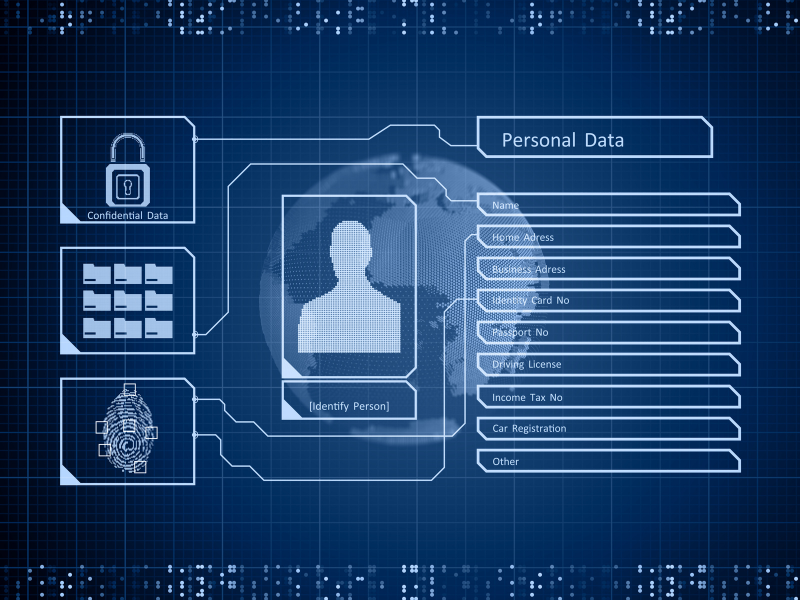Understanding who our customers are goes beyond knowing their basic details — it’s about creating a comprehensive profile that integrates behaviors, preferences, and interactions. Customer identity offers the tools to personalize experiences, which not only enhances the customer experience but also drives loyalty and business growth.
Key Takeaways
- Holistic customer profiles integrate behaviors, preferences, and interactions beyond basic demographics.
- Identity management systems drive trust and customer loyalty by personalizing experiences.
- Behavioral insights provide targeted strategies that align with customer expectations and boost retention.
- Privacy compliance with regulations like GDPR and CCPA ensures transparency and safeguards personal data.
- Advanced identity management tools like Private Identity’s on-device biometric verification ensure both privacy and security.
- Customer-centric practices and transparent consent mechanisms are critical to maintaining trust and long-term engagement.
By using advanced identity management systems, organizations can offer personalized, seamless experiences that foster trust and build long-term relationships. In this increasingly digital world, managing customer identity properly is crucial, and solutions like Private Identity’s privacy-preserving, on-device authentication ensure that data remains secure and compliant. Let’s dive into the significance of customer identity and how it can propel business success.

Understanding Customer Identity
Customer identity isn’t just about collecting names and addresses — it’s about creating a 360-degree profile that includes a customer’s behaviors, interactions, and preferences. This integration of data allows businesses to make informed decisions and deliver highly personalized services that resonate with customers.
Behavioral data, such as purchase frequency, online browsing habits, and preferred communication channels, gives businesses the tools to engage with their audience meaningfully. Identifying what customers value and understanding their preferences enable personalized recommendations and tailored marketing strategies that enhance customer satisfaction.
Modern identity management platforms, like Private Identity’s on-device verification system, help companies collect and manage this data securely. These platforms utilize advanced technologies, such as biometric authentication, to ensure that the data is verified and kept private, reducing the risks associated with centralized data storage.
Importance of Customer Identity in Business
Enhancing Customer Relationships
Having a deep understanding of customer identity strengthens relationships by aligning services with customer expectations. For example, by analyzing data on purchase history and communication preferences, businesses can reach out in a way that feels personal and relevant. Private Identity’s technology ensures that this data remains secure by processing it on-device, eliminating the need for risky cloud-based storage.
When businesses use this kind of tailored approach, customers feel valued and understood, which drives engagement and increases retention. Strong relationships with customers aren’t just based on providing products but also on respecting their privacy and preferences.
Personalizing Marketing Strategies
Customer identity plays a critical role in personalized marketing. When businesses have access to detailed customer profiles, they can send targeted content, promotions, and recommendations based on the customer’s behavior and preferences. For instance, a customer who regularly buys a specific brand of products will likely appreciate similar suggestions for other items.
Incorporating identity management tools like Private Identity allows businesses to personalize these experiences while ensuring that customer data remains secure and compliant with privacy regulations. The use of encryption and secure biometric authentication adds an additional layer of confidence in handling customer data.
Boosting Customer Retention
Understanding customer identity is central to improving retention. By analyzing customer behavior, businesses can predict future needs and act proactively to meet those needs. For example, analyzing repeat purchase behavior can allow businesses to suggest products at the right time, ensuring that customers return when they are ready for their next purchase.
Tools like Private Identity’s on-device biometric verification also help create frictionless experiences for users, allowing them to access their accounts quickly and securely, which can significantly improve customer satisfaction and loyalty.
Key Elements of Customer Identity
Data Collection and Analytics
Effective identity management starts with accurate data collection. Collecting a range of data, such as transaction history, demographic information, and interaction data, creates a robust customer profile. Private Identity ensures that this sensitive data is protected through privacy-preserving technologies, including on-device storage and processing, so that no personal information is ever exposed or stored in a central database.
Analytics tools can then process this data to generate actionable insights. By understanding customer behavior and patterns, businesses can create personalized experiences and make data-driven decisions to improve engagement.
Customer Behavior Insights
Behavioral data, including purchase patterns, channel preferences, and online activity, provides valuable insights into customer behavior. This data helps businesses anticipate customer needs, predict trends, and offer personalized solutions. By understanding how customers engage with the brand, businesses can refine their marketing strategies and enhance the customer journey.
Advanced identity management solutions, such as Private Identity, utilize this data while ensuring compliance with privacy regulations. For instance, Private Identity’s biometric verification ensures that customers’ identities are verified in real-time without sacrificing privacy.
Privacy and Security Considerations
Privacy and security are at the core of managing customer identity. Customers want to feel confident that their personal data is protected and only shared when necessary. With stringent regulations like GDPR and CCPA in place, businesses need to ensure that they handle customer data responsibly.
Private Identity meets these requirements by processing biometric data entirely on-device, ensuring that sensitive customer information never leaves the user’s device. This method reduces risks associated with data breaches and eliminates the need for storing personal information in cloud-based systems, offering businesses a solution that maintains compliance with the highest privacy standards.
Challenges in Managing Customer Identity
Data Accuracy and Consistency
Accurate and consistent customer data is essential for effective identity management. Without accurate profiles, businesses risk providing irrelevant or incorrect services, which can harm customer relationships. For instance, outdated contact information can lead to missed communications, while incomplete profiles may result in poor customer experiences.
By centralizing customer data and ensuring it is updated regularly, businesses can improve the accuracy and reliability of their identity management systems. Private Identity enhances this process by securely managing identity verification data without relying on outdated or inaccurate information from centralized sources.
Compliance with Regulations
Meeting data privacy regulations is a key challenge for businesses managing customer identity. With the constant evolution of laws like GDPR and CCPA, staying compliant can be a moving target. Businesses need tools that help them remain aligned with these regulations while providing a seamless customer experience.
Private Identity simplifies compliance by utilizing encryption and on-device processing, ensuring that personal data is never stored in the cloud. By adopting these solutions, businesses can stay ahead of compliance challenges and reduce the risk of data breaches or privacy violations.
Safeguarding Customer Trust
Trust is a cornerstone of customer relationships. If a business mishandles customer data or compromises security, it risks losing customer trust and damaging its reputation. Private Identity helps safeguard trust by offering privacy-preserving identity verification, ensuring that no data is exposed to unauthorized parties. When businesses adopt these solutions, they show customers that they prioritize security and respect for privacy.
Best Practices for Customer Identity Management
Leveraging Technology and Tools
Advanced identity management solutions, like Private Identity, help businesses safeguard customer data while offering streamlined services. These tools enable businesses to centralize and verify customer information while ensuring compliance with privacy regulations. By integrating secure solutions into the customer experience, businesses can improve both trust and efficiency.
Adopting a Customer-Centric Approach
At the heart of successful identity management is a customer-centric approach. By understanding customer needs and preferences, businesses can offer tailored experiences that enhance satisfaction and retention. Private Identity’s technology allows businesses to adopt a customer-first approach by ensuring that customer data is securely verified and managed.
Ensuring Transparency and Consent
Building trust requires transparency. Customers want to know how their data is being used and shared. Implementing clear consent processes and providing customers with control over their information can enhance the customer experience. By prioritizing transparency, businesses can foster stronger relationships with their customers. Private Identity supports these efforts by offering secure, on-device verification solutions that respect privacy while enabling businesses to offer seamless services.
Conclusion
Managing customer identity is essential for building trust and driving business growth. By leveraging advanced identity management solutions like Private Identity, businesses can provide personalized, secure, and compliant experiences that foster loyalty. Through accurate data collection, behavioral insights, and privacy-preserving technologies, businesses can create deeper connections with customers while safeguarding their personal information.
As the digital landscape continues to evolve, adopting secure and innovative identity management systems will be key to staying competitive and maintaining customer trust in the years to come.
Frequently Asked Questions
What is customer identity?
Customer identity refers to the comprehensive profile created by integrating customer data, such as demographics, behaviors, and interactions, to personalize experiences and build trust.
Why is managing customer identity important?
Effective customer identity management helps businesses understand customer needs, personalize experiences, and build long-term loyalty while ensuring data security and privacy.
How does customer identity impact marketing?
By understanding customer identity, businesses can tailor marketing efforts, offering personalized recommendations and targeted promotions that improve engagement and conversion rates.
What challenges do businesses face in managing customer identity?
Challenges include ensuring data accuracy, maintaining compliance with privacy regulations, and safeguarding customer trust in an increasingly data-driven world.
What are the benefits of using Private Identity for customer identity management?
Private Identity provides secure, on-device biometric authentication and encryption, offering a privacy-preserving solution that helps businesses meet compliance requirements and protect customer data.
